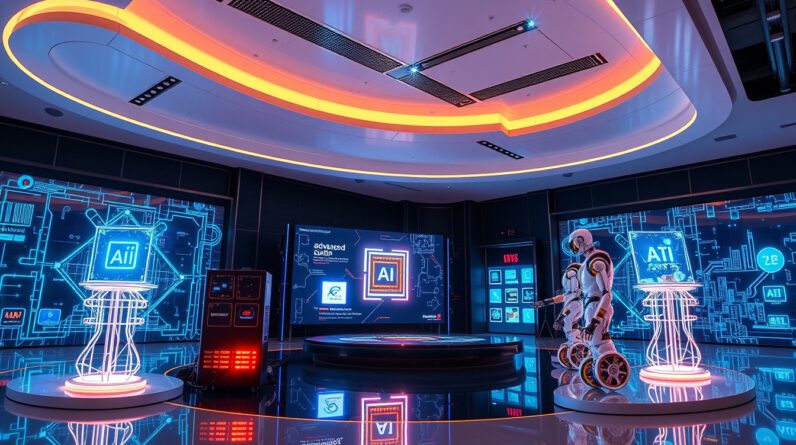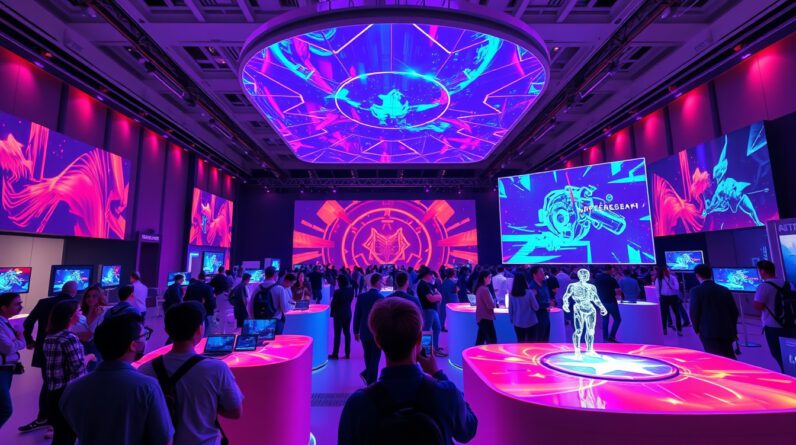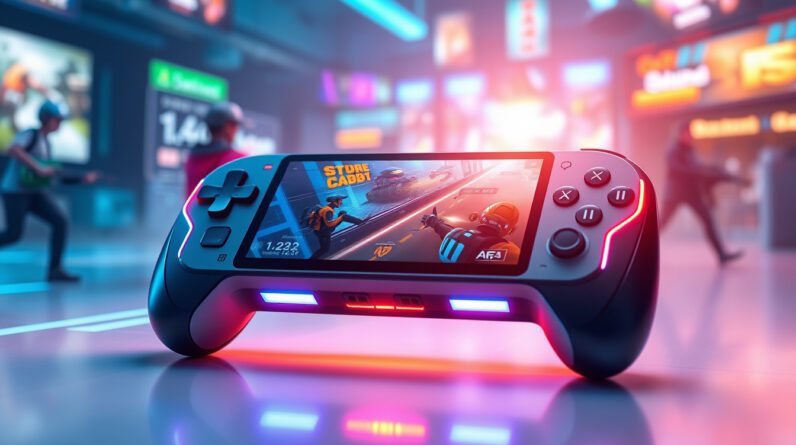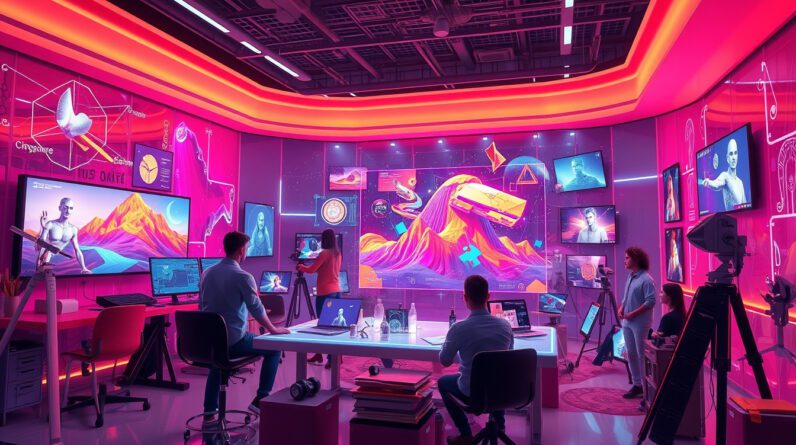
The Nvidia GPU Technology Conference (GTC) 2025, poised to be one of the most significant technology events of the year, has kicked off in San Jose, California, attracting an impressive gathering of over 25,000 attendees. Underscoring the importance of this gathering, Nvidia’s CEO Jensen Huang delivered a keynote address centered on the latest breakthroughs in artificial intelligence (AI), a topic that has become increasingly relevant in today’s tech landscape. This year’s conference heralds the introduction of the cutting-edge Blackwell Ultra GB300 AI chip platform, set to revolutionize AI applications upon its expected launch in the fall. Alongside this exciting news, Nvidia is also teasing the next-generation Vera Rubin AI graphics processor, anticipated for release in 2026, which promises to elevate graphic processing and AI capabilities even further.
As Nvidia presents its vision for the future, the discussions around AI, robotics, and quantum computing dominate the agenda, particularly as industry leaders, including prominent figures like Michael Dell and Jeffrey Katzenberg, lend their voices to the proceedings. Despite the backdrop of stock volatility that has left investors apprehensive—especially after Nvidia’s shares hit a record high only to see fluctuations due to concerns about a potential slowdown in AI demand, partly driven by rising competition from firms like DeepSeek—Huang aims to fortify confidence in Nvidia’s strategic direction. Investors are keenly observing GTC for insights into AI sustainability and the promising landscape of AI agents and humanoid robotics. Analysts remain optimistic about Nvidia’s stock outlook, viewing GTC as a crucial pivot point for the tech industry. In navigating this complex environment, Nvidia continues to assert itself as a leader in AI innovation, solidifying its role in the dynamic evolution of technology.

Takeaways
- Nvidia’s GTC 2025 introduces the groundbreaking Blackwell Ultra GB300 AI chip, signaling a leap in AI technology.
- The conference highlights Nvidia’s commitment to advancements in robotics and quantum computing amidst market fluctuations.
- CEO Jensen Huang aims to reassure investors about the sustainability of AI demand and competition in the tech landscape.
Introduction of Blackwell Ultra GB300 AI Chip
## Introduction of Blackwell Ultra GB300 AI Chip
The Nvidia GPU Technology Conference (GTC) 2025, currently ongoing in San Jose, California, has drawn an impressive crowd of over 25,000 attendees, highlighting the importance of this event for technology enthusiasts and industry professionals alike. At the forefront of the conference is Nvidia CEO Jensen Huang, whose keynote speech has set the stage for monumental AI advancements. One of the most talked-about announcements is the Blackwell Ultra GB300 AI chip platform, slated for a fall launch. This innovative chip is expected to revolutionize AI capabilities across various sectors, fortifying Nvidia’s position as a leader in AI solutions. Additionally, attendees are buzzing about the next-generation Vera Rubin AI graphics processor, set to launch in 2026, which promises to push the boundaries of graphical and computational performance. With industry titans like Michael Dell and Jeffrey Katzenberg present, the significance of this conference is underscored, reflecting the high stakes and intense competition in the tech arena.
Amidst growing investor scrutiny due to recent stock fluctuations, Nvidia aims to reassure stakeholders about the sustainability of AI demand. Concerns regarding competition, particularly from emerging firms like DeepSeek, have contributed to stock volatility, which followed a historic peak. However, Huang’s comments on the potential of AI agents and humanoid robots may help to alleviate such fears, positioning Nvidia as not just a player in the current landscape but a key architect of future technologies. Analysts remain optimistic, viewing GTC as a crucial moment for tech stocks, indicative of the evolving market dynamics. As Nvidia continues to innovate, its leadership in AI advancements reaffirms its pivotal role in shaping the future of technology.
Future Prospects in Robotics and Quantum Computing
The future prospects of robotics and quantum computing look promising, especially as innovations from key industry players such as Nvidia are rolled out. The introduction of the Blackwell Ultra GB300 AI chip platform is poised to enhance computational capabilities, facilitating advancements in robotics that could lead to more sophisticated autonomous systems. This evolution is not limited to traditional applications; quantum computing is set to intersect with AI and robotics, potentially transforming how these technologies interact and function. Harnessing the power of quantum algorithms could allow robots to process data and learn from their environments at unprecedented speeds and accuracy. The integration of these fields can pave the way for smarter, more autonomous systems that can tackle complex problems in real-time, from manufacturing to healthcare. As developers and researchers continue to explore these synergies, the next few years may see a significant leap forward in the application of robotics powered by advanced AI and quantum technologies.




